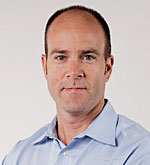sierraclub.org - sierra magazine - jan/feb 2012 - after the coal rush
AFTER THE COAL RUSH
Clean energy and good jobs—if we plan for them
By Michael Brune
 Photo by Lori Eanes
Photo by Lori Eanes
When I started at the Club in spring 2010, I quickly found agreement among our board, volunteers, and staff that we needed to be more solutions-oriented. Our organization has an awesome record of success over the past 120 years, but this century requires us to be as strong in creating the world we want as we are in resisting the one we fear.
Nowhere is this positive imperative clearer than in the energy crisis we've been experiencing. That crisis includes the largest U.S. coal mine disaster in a generation, which left 29 miners dead; the largest oil spill in American history; and a frightening nuclear meltdown in Japan. Concerns about drilling for natural gas are largely ignored by the industry as well as state and federal regulators.
But here's some great news for a country that's parched for it. The price of solar panels has dropped 70 percent in the past three years. Iowa now gets nearly 20 percent of its power from wind. And Colorado's largest utility has announced that it will soon obtain 30 percent of its power from wind and solar. Clean energy is mainstream, not a pipe dream. It's ready to grow and to lift our economy with it.
So we've made scaling up clean-energy solutions a top priority at the Sierra Club—whether it's helping our members put solar panels on their rooftops or working with wind-turbine companies (and even the U.S. Chamber of Commerce) to streamline the permitting process for clean energy in towns and cities across the country.
 Dan Page
Dan Page
Scott Martelle's article in this issue of Sierra ("Kick Coal, Save Jobs, Right Now"), which describes the deal to retire the last remaining coal-fired power plant in the Pacific Northwest, provides an example of how well this approach can work. It also shows why we call our campaign Beyond Coal instead of Stop Coal. As far as we're concerned, stopping coal is just the beginning. It's what happens next that's really important—and exciting. As more than 500 outdated and polluting coal plants disappear from the map, our nation will be transformed. We're not just eliminating something bad; we're making room for something better.
In the case of the coal plant in question, TransAlta's facility in Centralia, Washington, the keys to success were agreeing to a gradual transition that will allow time to build a renewable-energy infrastructure and pushing for a significant financial commitment from the company to help the community develop new clean-economy jobs. The result: By 2025, the Pacific Northwest will be the first region of the country to become completely coal-free.
Clean energy and good jobs—people want both. Put the two together, as we did in Centralia, and you're looking at one of the most effective tools for building a national movement to end America's addiction to dirty fossil fuels. That's because clean-energy jobs are not just good for the environment; they're also good for America and American workers.
For starters, they pay better—13 percent more, on average, than median U.S. wages. They also offer a more secure long-term future. So we have a clear choice: We can design, engineer, build, and maintain the energy infrastructure of the future, or we can harness the power of American workers to extract and burn every last ounce of fossil fuel, regardless of the consequences.
And speaking of building things, another great feature of clean-energy jobs is that they're more likely to be based in the manufacturing sector. That means that industrial workers, who've been hard-hit by this recession, can get back to the business of making things, whether it's wind turbines, batteries for electric vehicles, or energy-efficient building materials.
Environmentalists spend so much effort leading the fight against bad things that we sometimes fail to think beyond the day when the problem actually goes away. It's time to change that, as we did in Centralia. It's time to plan for our future beyond coal.
is the executive director of the Sierra Club. You can e-mail him at michael.brune@sierraclub.org and follow him on Twitter and Facebook.